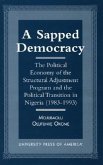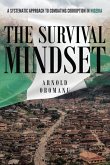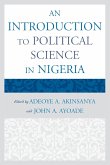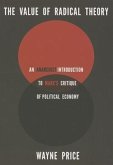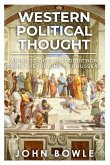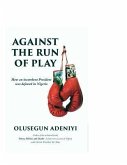Introduction to the Political Economy of Nigeria is Book 1 of the Series "The Nigerian Political Economy: History, Structure, and Pathways to Development". It employs key political-economic models such as Arthur Lewis's Dual Sector Model, Rostow's Stages of Growth, Rentier State Theory, Neo-Patrimonialism, and New Institutional Economics to map the political-economic evolution of Nigeria from pre-independence to the current era. This foundational book shows that corruption, the perennial dependency on oil, a vast informal sector, and structural dualism have helped to constrain Nigeria's political-economic transformation, inhibiting the early achievement of economic emergence and sustainable development. To move forward, governance and the electoral systems must digitize to promote transparency and accountability through building and regularly updating databases that can be revisited long after successive political leaders are out of office. Globally, political leaders become more cautious and prudent when they know that the records of their stewardship can be accessed and used for or against them long after they leave office. Poor record keeping makes the work of anti-graft agencies in Nigeria more difficult. Nigeria has enormous human and material resources to leapfrog to global competitiveness and relevance. However, leadership selection has remained a sore point since independence, and to achieve success private participation, civil society activism, and a commitment press are essential ingredients needed to place Nigeria on a steady growth path. Fundamentally, what is needed is amending the electoral laws to make real-time electronic thumbprinting/voting and vote counting compulsory for all federal, state, and local council elections. Fortunately, the biometric technology for achieving a secure, free, and fair electoral system already exists in Nigeria and is being used by banks to make payments using ATMs. A voter's card produced as an ATM-like voter's card embowed with personalized biometrics and connected to the National Identity Number (NIN) can be programmed to allow each cardholder to vote only once for a given election. With such a system voting can be staggered over some days to reduce pressure on the electronic system used. Those benefiting from the present system will certainly resist such reforms. However, sustained pressure through advocacy, lobbying, and political education by the civil society movement and the press will make the desired change achievable. A prosperous and vibrant Nigerian political economy is possible and achievable if the recommendations offered in this book are considered and implemented.
Hinweis: Dieser Artikel kann nur an eine deutsche Lieferadresse ausgeliefert werden.
Hinweis: Dieser Artikel kann nur an eine deutsche Lieferadresse ausgeliefert werden.


